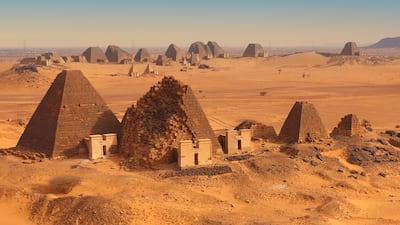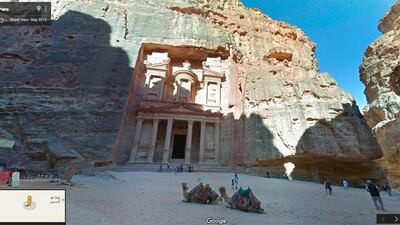Google on Tuesday unveiled a new digital experience on its Arts & Culture platform that features Sudan's Pyramids of Meroe, using the interactive technologies of the world's largest internet company.
The tour features a virtual walk through the pyramids — designated as a World Heritage Site by Unesco. It also allows viewers to zoom in on their inscriptions using Google's Street View panoramic imagery, the California-based company said.
The Meroe experience, which is available in English, Arabic, German, French and Spanish, also brings the pyramids closer by using augmented reality models Google launched specifically for the project.
The "immersive experience [will] help people around the world learn more about the Kingdom of Kush and its culture in an engaging way", said Mariam Dabboussi, product marketing manager at Google, referring to the ancient realm along the Nile Valley that is considered a cradle of civilisation.
Virtual tours have gained momentum in recent years, providing experiences similar to the real thing without a person being physically present.
The market size for the global virtual tour industry is expected to reach about $24 billion by 2028 at an annualised growth rate of 31 per cent from 2021 to 2028, Adroit Market Research has said.
Historic locations in the Middle East and North Africa have been the subject of a number of virtual tours recently, including Baalbek Reborn: Temples, an app that features the Roman Heliopolis of Baalbek in Lebanon, and Preserving Egypt's Layered History, a platform — also backed by Google — offering virtual tours of Egypt's famous spots.
At the recently concluded Expo 2020 Dubai, Japan's pavilion, one of the most popular, offered virtual tours to engage more visitors.
Businesses are also using virtual tours for product launches. For instance, South Korea's Samsung Electronics, the world's largest mobile phone manufacturer, has recently been using such platforms in media previews for a number its Galaxy smartphone launches.
Unesco has also curated dedicated content to learn more about Meroe’s archaeological site, Gebel Barkal, and the sites of Napatan region, and Sudan’s Sanganeb Marine National Park, Google said.
The Meroe experience is Google’s latest effort to help share the culture and heritage of Mena with the world. The company has been digitalising imagery used in virtual experiences for over 20 historical landmarks and sites — including the Sheikh Zayed Grand Mosque in Abu Dhabi and the Petra in Jordan — since 2013.
Google Arts & Culture, formerly known as the Google Art Project, is a non-profit initiative working with cultural institutions and artists globally to preserve the world’s art and culture, shifting them to online platforms for easier access.
Its "Experiments" platform collections feature artificial intelligence and digital well-being to creativity and culture, the last of which the Meroe project is part of.











